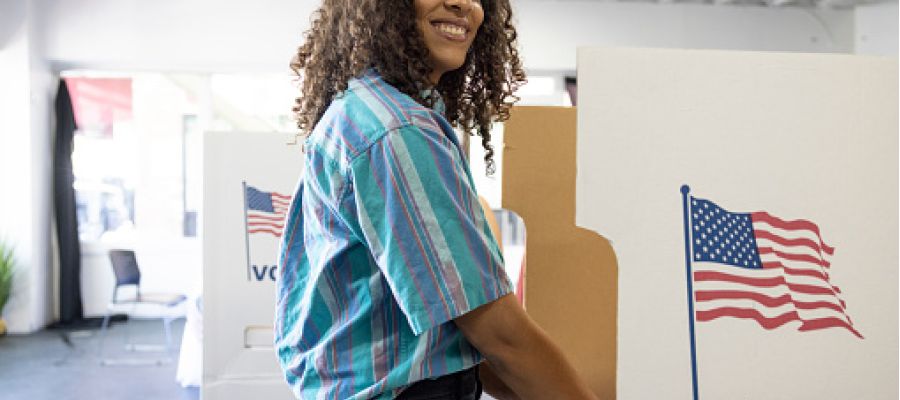Appellate Court Ruling on Voting Rights Act May Overturn the Historic Law Precedent
An appellate court decision essentially rejects one of the nation’s landmark civil rights laws
A recent U.S. appellate court ruling has caused a stir, potentially leading to overturning Supreme Court precedent with respect to the Voting Rights Act.
The decision out of the U.S. Circuit Court of Appeals for the 8th Circuit, stemming from a redistricting case in Arkansas, says that people and private entities may not sue in order to enforce key provisions under a section of the Voting Rights Act known as Section 2. Passed in 1965, the Voting Rights Act outlawed discriminatory voting practices—those of which were adopted post-Civil War in many southern states. Section 2 of the Act has helped ensure that voting maps are drawn fairly so that minority voters have the chance to elect candidates of their choosing. Historically, private individuals and groups, such as the NAACP Legal Defense Fund or American Civil Liberties Union, have brought most cases regarding Section 2 claims to court to uphold the protections that the law affords. With this ruling, these plaintiffs would not be able to bring such litigation under Section 2.
If this appellate court ruling stands, it would negate much of the historic Voting Rights Act put in place to for the very purpose of prohibiting racial discrimination in elections. The original case was brought by the Arkansas chapter of the NAACP and the Arkansas Public Policy Panel in its challenge of Arkansas’ state House map. The ruling impacts seven states that are covered by the 8th Circuit: Arkansas, Iowa, Minnesota, Missouri, Nebraska, North Dakota and South Dakota.
The appellate panel, in their 2-1 decision, affirmed a 2022 ruling by an Arkansas judge that held only the U.S. Justice Department can bring Section 2 lawsuits. In their decision, the judges noted that the “text and structure” of the voting rights statute does not give private plaintiffs the authority to sue.
The ruling clearly contradicts decades of legal practice. “For much of the last half-century,” U.S. appellate judge David Stras acknowledged, “courts have assumed that Section 2 is privately enforceable.” However, he adds, “A deeper look has revealed that this assumption rests on flimsy footing…”
The case will likely be appealed to the U.S. Supreme Court.
Do You Have Questions About Filing a Discrimination Lawsuit?
Speak with a civil rights attorney at Grant & Eisenhofer if you or a loved one were discriminated against. Compensation from a civil rights lawsuit may help pay for expenses that resulted from the harm you or a loved one suffered, including medical bills, funeral expenses, loss of income, loss of earning capacity, and costs related to pain and suffering. Civil rights violations affect society as a whole, and lawsuits can help bring attention to these important causes.

